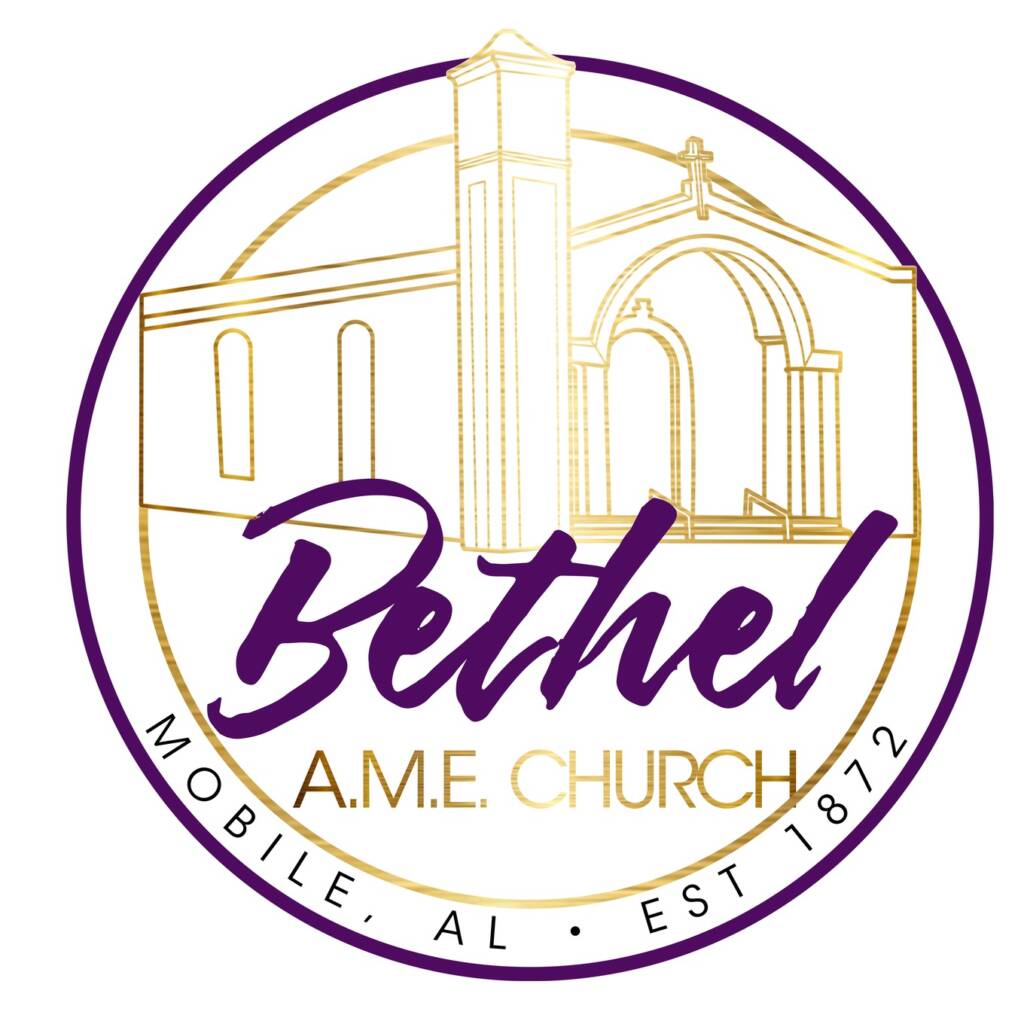
We Are Bethel Mobile!
We are a beacon of hope, a loving church Family, a sanctuary where the Spirit of the Lord dwells. As members of Bethel AME Church, we are called to a higher purpose, to embody the principles of our faith through unity, love, and service.
Our Mission:
We are rooted in the timeless truths of God’s Word, laying aside our differences to cultivate a culture of acceptance and love among us. We recognize that our diversity is a strength, and together, we can grow in faith and understanding, ensuring that every voice in our congregation is heard and valued.
Compelled by the Great Commission, we are driven to share the transformative love of Christ. We will work hand-in-hand, putting aside personal agendas to reach our community and beyond, embracing a collective mission that reflects the heart of Christ.
We empower believers to grow in knowledge and understanding of the Scriptures. In our commitment to education and discipleship, we foster an environment where learning is collaborative, encouraging open dialogue and mutual respect as we delve deeper into God’s Word.
In worship, we awaken our souls and set our hearts ablaze. We celebrate our differences and bring our unique expressions of worship together, creating a rich tapestry that honors God and unifies our congregation.
We are bound together in fellowship and support, recognizing that each member plays a vital role in the body of Christ. By laying aside differences, we strengthen our bonds and foster a spirit of community.
We model responsible stewardship, generously sowing seeds of blessing into our community. Our leaders will guide us with integrity, transparency, and a commitment to unifying our church members under a shared vision.v

Our Beliefs
The Motto “God Our Father, Christ Our Redeemer, the Holy Spirit Our Comforter, Humankind Our Family” is a great summary of what the African Methodist Episcopal Church believes.
1. OF FAITH IN THE HOLY TRINITY
There is but one living and true God, everlasting, without body or parts, of infinite power, wisdom and goodness; the maker and preserver of all things, both visible and invisible. And in unity of this God-head, there are three persons of one substance, power and eternity; the Father, the Son and the Holy Ghost..
2. OF THE WORD OR SON OF GOD, WHO WAS MADE VERY MAN
The Son, who is the Word of the Father, the very and eternal God, of one substance with the Father, took man’s nature in the womb of the blessed Virgin; so that two whole and perfect natures, that is to say, the God-head and manhood, were joined together in one person, never to be divided, whereof is one Christ, very God and very man, who suffered, was crucified, dead and buried, to reconcile his Father to us, and to be a sacrifice, not only for original guilt, but also for actual sins of men.
3. OF THE RESURRECTION OF CHRIST
Christ did truly rise from the dead, and took again his body with all things appertaining to the perfection of man’s nature, wherewith he ascended into heaven, and sitteth until he returns to judge all men at last day.
4. OF THE HOLY GHOST
The Holy Ghost, proceeding from the Father and the Son, is of one substance, majesty and glory with the Father and the Son, very and eternal God.
5. THE SUFFICIENCY OF THE HOLY SCRIPTURES FOR SALVATION
The Holy Scripture containeth all things necessary to salvation; so that whatever is not read therein, nor may be proved thereby, is not to be required of any man, that it should be believed as an article of faith, or be thought requisite or necessary to salvation. In the name of the Holy Scriptures, we do understand those canonical books of the Old and New Testament, of whose authority was never any doubt in the Church.
Additional information regarding our beliefs can be found at http://www.ame-church.com/our-church/our-beliefs/
Sacraments ordained of Christ are not only badges or tokens of Christian men’s profession, but rather they are certain signs of grace, and God’s good will towards us, by the which he doth work invisibly in us, and doth not only quicken, but also strengthen and confirm our faith in Him.
There are two Sacraments ordained of Christ our Lord, in the Gospel; that is to say, Baptism and the Supper of the Lord.
Those five commonly called sacraments, that is to say, Confirmation, Penance, Orders, Matrimony and Extreme Unction, are not to be counted for Sacraments of the Gospel; being such as have partly grown out of the corrupt following of the Apostles; and partly are states of life allowed in the Scriptures, but yet have not the like nature of Baptism and the Lord’s Supper, because they have not any visible sign, or ceremony ordained of God.
The Sacraments were not ordained of Christ to be gazed upon, or to be carried about; but that we should duly use them. And in such only as worthily receive the same, they have a wholesome effect or operation; but they that received them unworthily, purchase to themselves condemnation, as St. Paul saith.
Baptism is not only a sign of profession, and mark of difference; but it is also a sign of regeneration, or the new birth. The baptism of young children is to be retained in the church.
The Supper of the Lord is not only a sign of the love that Christians ought to have among themselves one to another, but rather is a Sacrament of our redemption by Christ’s death; insomuch, that to such as rightly, worthily, and with faith receive the same, the bread which we break is a partaking of the body of Christ; and likewise the cup of blessing is a partaking of the blood of Christ.
Transubstantiation, or the change of the substance of bread and wine in the Supper of our Lord, cannot be proved by Holy Writ; but is repugnant to the plain words of Scripture, overthroweth the nature of a sacrament, and hath given occasion to many superstitions.
The body of Christ is given, taken and eaten in the Supper, only after a heavenly and spiritual manner. And the means whereby the body of Christ is received and eaten in the Supper, is faith. The Sacrament of the Lord’s Supper is not by Christ’s ordinance reserved, carried about, lifted up, or worshipped.
Learn About the History of the AME Church


Our Service Times
Sunday
- 9:00 – Church School
- 10:30 – Worship Service
Wednesday
- 12:00pm – Midday Bible Study
